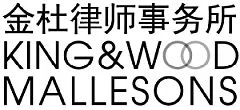- within International Law, Government, Public Sector and Tax topic(s)
- with Senior Company Executives, HR and Inhouse Counsel
- with readers working within the Healthcare, Metals & Mining and Securities & Investment industries
On 29 December 2010, the National Development and Reform Commission (NDRC) issued rules entitled Procedural Rules on Administrative Enforcement of Anti-price Monopoly (procedural rules). These procedural rules provide further guidance as to how Chapter 6 of the Anti-Monopoly Law (AML), entitled "Investigation of Alleged Monopoly Acts" operate. Chapter 6 of the AML outlines the investigation powers of the antimonopoly authorities.
This is the first time that the NDRC has issued any procedural rules in respect of the AML.
These procedural rules are expected to work hand-in-hand with the Rules on Anti-Price Monopoly also issued by the NDRC on the same date (for an overview of the Rules on Anti-Price Monopoly, please see our article dated 30 December 2010 entitled "Rules on Anti-Price Monopoly – effective 1 February 2011" ).
The following provides an overview of the salient provisions within the procedural rules:
- Who may enforce the prohibitions against price-monopoly?
- According to Article 3 of the procedural rules, the power of investigation and sanction belongs to the NDRC and authorized provincial level Development and Reform Commissions (DRCs) or Price Bureaus (PBs).
- Article 4 of the procedural rules provides that powers of investigation may be delegated to the lower level DRCs or PBs, however: (1) the delegated DRCs or PBs shall carry out the investigation in the delegating DRCs or PBs; and (2) they should not re-delegate the power of investigation.
- How will the authorities go about investigating alleged price
monopoly conduct?
Pursuant to the AML and the procedural rules, the following are the basic procedural steps in a price monopoly investigation:
- Accepting and verifying the content of the following reporting
materials:
- Information on whether the same fact has been reported to any other administrative authority or filed with the People's Court.
- Basic information of the alleged violator.
- Relevant facts and evidences that the reporter provided.
- Other items that shall be investigated.
- Investigation
According to Article 39 of the AML and the Article 6 of the Procedural Rules, the NDRC or authorized or delegated DRCs or PBs have the following investigatory powers:
- inspecting business premises or other related premises;
- interviewing with individuals;
- ordering the production of specific documents or information;
- sealing up or retaining the relevant evidence; or
- enquiring into the bank accounts of the business operator.
- Leniency consideration (see below)
- Commitments may be accepted
According to Article 45 of the AML and Article 15 to 18 of the procedural rules, where a business operator under investigation undertakes or commits to eliminate the allegedly infringing conduct within a period approved by the NDRC, the NDRC may suspend or terminate the investigations.
- Determination
According to Article 12 of the Procedure Rules, should the NDRC or the provincial level DRC or PB conclude that the conduct amounts to an anti-price monopoly act, it will make a determination pursuant to the AML and may make a public announcement.
- Accepting and verifying the content of the following reporting
materials:
- Leniency for Companies
Article 46 of the AML and Article 14 of the Procedure Rules provide the source for a leniency regime, which gives the NDRC or the provincial level DRC or PB discretion to reduce or waive punishment for business operators participating in a price-fixing if they:
- voluntarily reporting the relevant facts; and
- providing material evidence.
The basic elements of the leniency regime, pursuant to the procedural rules are as follows:
- In order to have a chance to receive a full exemption from
sanction by the NDRC, business operators should:
- be 'first in' in terms of reporting; and
- provide material evidence.
- The second voluntary reporter may be given a punishment mitigated by over 50%; and
- Other business operators who are not 'first in' or the second may be given a punishment mitigated by less than 50%.
Comments
First, the county level DRCs or PBs has no authority to investigate or sanction any business operator according to the AML. However, they can enforce the Price Law for the same conduct according to Article 14 of the Price Law.
Second, according to the procedural rules, there is no requirement of any formal announcement of initiation of an anti-price monopoly investigation. That means the NDRC can carry out an unannounced inspection of business premises or other related promises.
Third, the full exemption for the "first in" of the leniency program is not guaranteed. The NDRC has discretion to decide the level of sanction.
The content of this article is intended to provide a general guide to the subject matter. Specialist advice should be sought about your specific circumstances.



